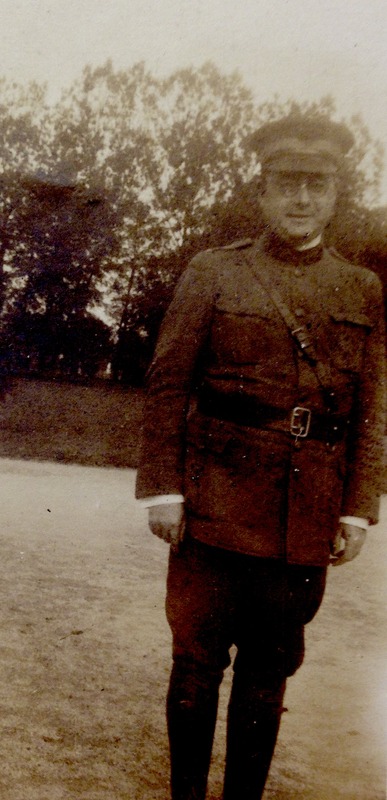Wilfrid Haughey
On Christmas Day 1917, Wilfrid Haughey penned a letter from Paris to his wife Edith in Battle Creek: “One day made me so lonesome I couldn’t stay. Think of being in a city of 4,000,000 people, thousands of miles from home -- absolutely alone.” [1] A 1904 graduate of the University of Michigan, Haughey had practiced as a doctor in Battle Creek for a nearly a decade before enlisting in the Army Medical Reserves; as a specialist in eye, throat, and ear issues, his service was especially important in keeping pace with the technological changes of World War One. The war saw the first widespread use of chemical weapons, horrifying compounds that burned when inhaled, blistered skin on contact, and left many soldiers permanently disfigured. Haughey headed a hospital some twenty miles from the Western front and oversaw the treatment of some of the earliest gas casualties, a heavy burden and a crushing disillusionment that haunted his letters home. Despite the colossal toll of the conflict, Haughey’s hospital earned a reputation as one of the best-run in the area and he personally attended to as many as sixty injured soldiers per day, showcasing the dedication that earned him several promotions throughout the course of the war. Following the armistice, Haughey returned to Battle Creek and raised a large family with Edith, sending all eight of their children to the University of Michigan.
[1] Wilfrid Haughey to Edith Haughey, 25 December 1917. Box 1, Folder 1. Haughey Family Papers, Bentley Historical Library. University of Michigan

